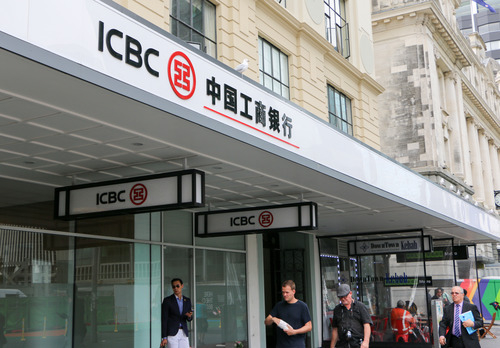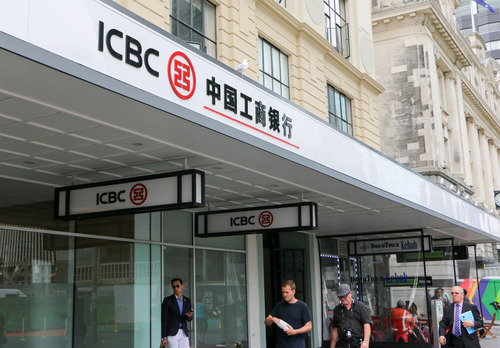
BEIJING, March 31 (Xinhua) -- China's six state-owned big lenders all reaped more net profits than 2019 last year, with Postal Savings Bank of China (PSBC; 601658.SH) achieving the highest growth among them at 5.36 percent, reported Xinhua-run Xinhua Finance Wednesday.
By Tuesday, annual financial reports of the six state-owned lenders, including Industrial and Commercial Bank of China (ICBC; 601398.SH), Agricultural Bank of China (ABC; 601288.SH), Bank of China (BOC; 601988.SH), Bank of Communications (BOCOM; 601328.SH), China Construction Bank (CCB; 601939.SH) and PSBC, showed that they earned in total 1.14 trillion yuan of net profits in 2020.
ICBC reported the biggest revenue and net profits among the six, at 882.665 billion yuan and 315.906 billion yuan respectively, with its net profits up 1.18 percent year on year. CCB and ABC saw their net profits exceed 200 billion yuan in 2020 and BOC pocketed 192.87 billion yuan of net profits. PSBC and BOCOM both reported less than 100 billion yuan of net profits for last year.
By growth pace, PSBC realized the fastest rise among the six, with its net profits up 5.36 percent from 2019 to 64.199 billion yuan and BOC ranked the second among them, with its net profits up 2.92 percent year on year. The remaining four state-owned lenders all achieved less than two percent of net profit growth in 2020.
In face of the effects of the COVID-19 pandemic, the ratio of non-performing loans (NPL) of the six state-owned lenders all picked up year on year, with that of ICBC, CCB, ABC and BOCOM up more than 0.1 percentage point from the comparable data of 2019.
There were objective pressures for China's six state-owned large lenders to manage asset quality, but their asset quality remained stable in general thanks to up cranked efforts into write off of non-performing assets, according to many bank executives.
Liang Shidong, chief risk officer with PSBC said that given China's explicitly recovering economy, banks are confident in their asset quality management but some risks are still worthy of further attention.
As influences of the pandemic lag to some extent behind the pandemic itself, banks shall pay close attention to industries in which shocks from the pandemic appear later than other industries, according to Liang.
Apart from these, certain enterprises with excessive production capacity lack efficiency in combating the pandemic and its digestion of excessive production capacity will also bring some risks, reminded Liang.
In spite of the pressures, risks of overall asset quality management are controllable, said Jin Yanmin, chief risk officer of CCB. (Edited by Duan Jing with Xinhua Silk Road, duanjing@xinhua.org)




 A single purchase
A single purchase









